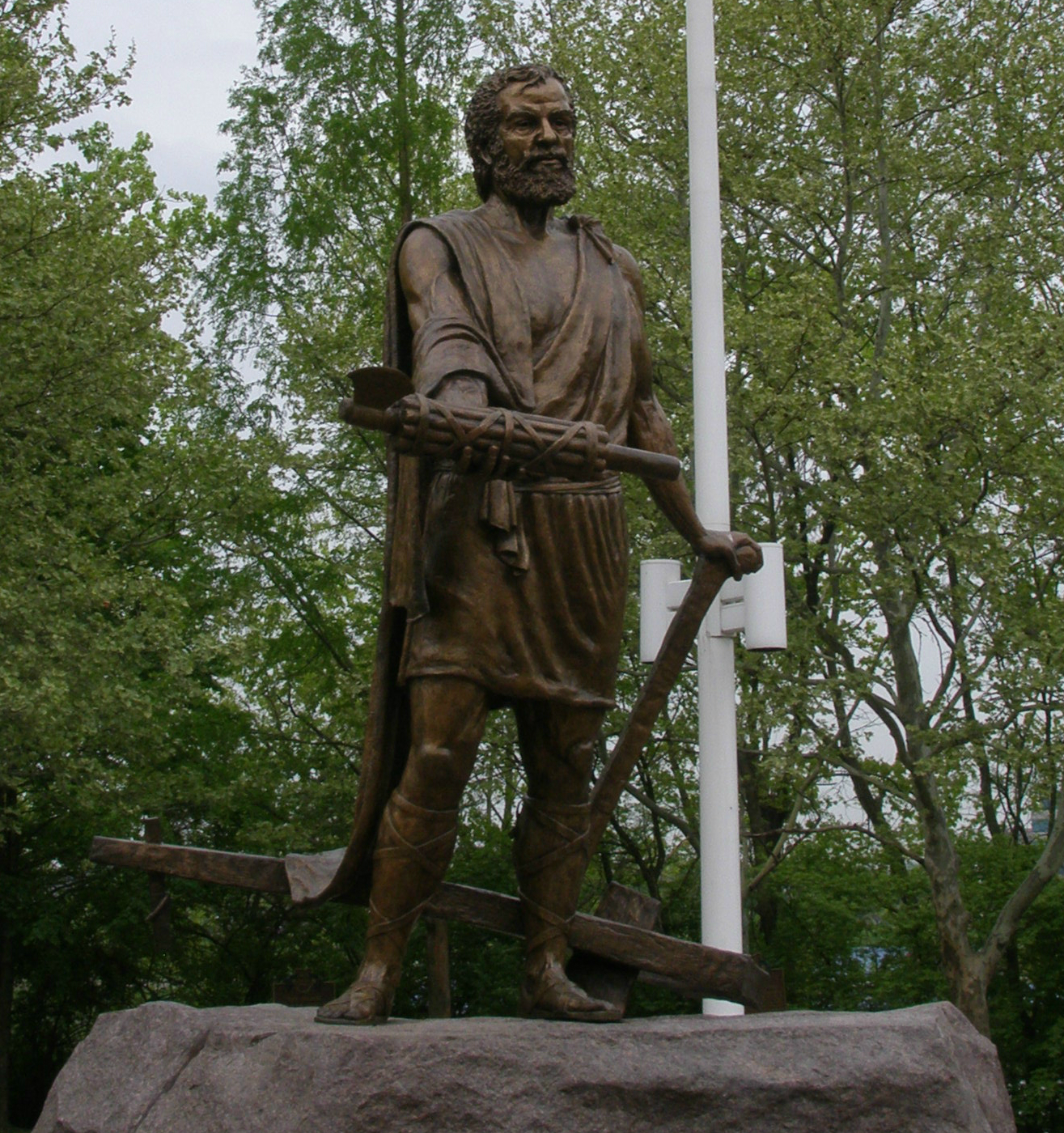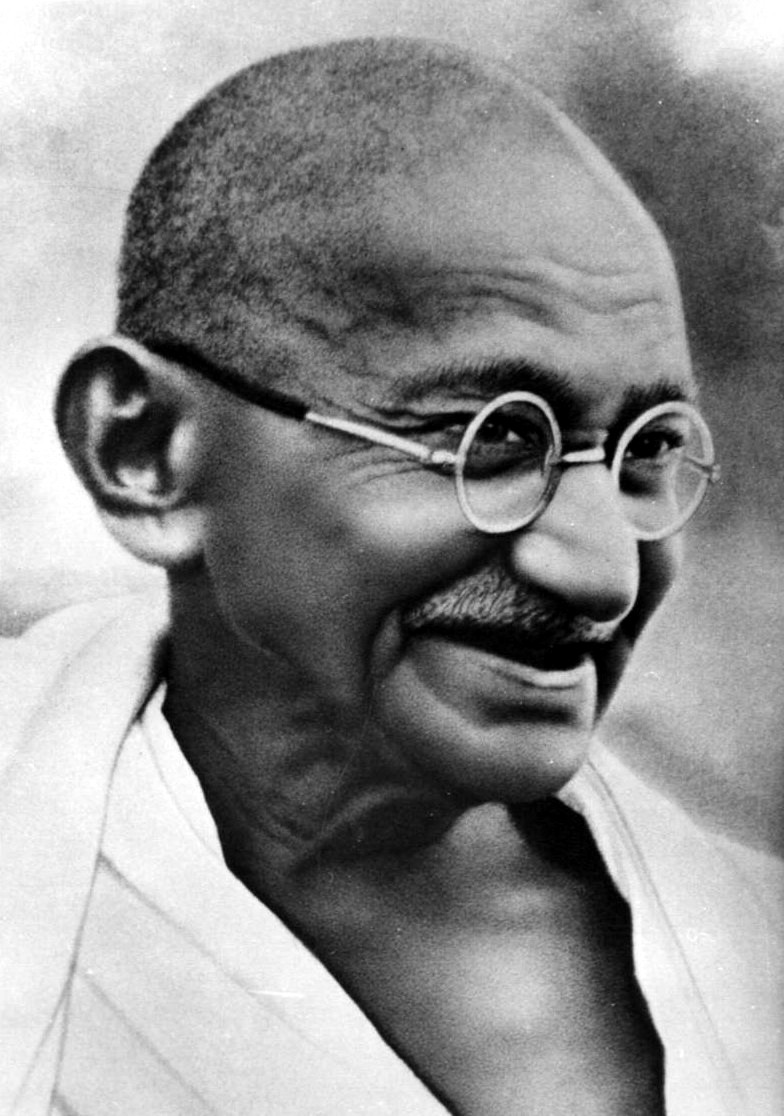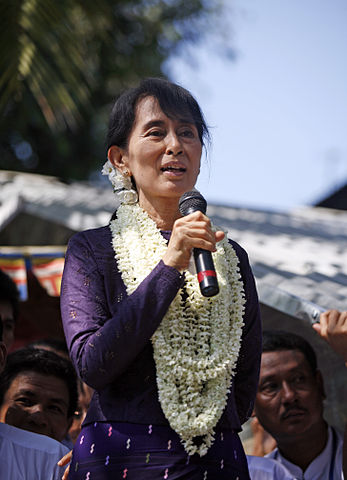Few days go by without us hearing another story about another corrupt politician. We’ve dealt with both the ridiculous (such as texting photographs of their unmentionables, or hosting bunga bunga parties) and the downright evil (such as ordering burglaries and even murders.) Yet, not all of world history’s politicians fall in line with the many criminals, despots, and idiots running things around the world. A number of politicians have served as beacons of integrity, and this list recognizes the top ten from history, in chronological order.
10. Aristides

Aristides was an ancient Athenian statesman nicknamed “The Just,” who flourished in the early quarter of Athens’s Classical
9. Lucius Quinctius Cincinnatus

Cincinnatus was a Roman aristocrat and statesman whose service as consul in 460 BC, and dictator in 458 BC and 439 BC, made him a model of civic virtue. The Roman senator accepted life as a farmer after his family fortune was lost. He was twice summoned to become dictator of Rome and defeated its enemies, but relinquished the office immediately once his duty was done. He was seen as a model for politicians of the United States. George Washington was often compared to Cincinnatus for his willingness to give up near-absolute power, once the crisis of the American Revolution had passed and victory had been won.
8. Marcus Aurelius

Aurelius, a Roman Emperor from 161 AD to 180 AD, ruled with Lucius Verus as co-emperor from 161 until Verus’s death in 169. Aurelius was the last of the Five Good Emperors, and is also considered one of the most important Stoic philosophers. According to Herodian, Aurelius “gave proof of his learning not by mere words or knowledge of philosophical doctrines but by his blameless character and temperate way of life.” The 1964 movie The Fall of the Roman Empire, and the 2000 movie Gladiator, featured characters based on him. Both plots posited that Marcus Aurelius was assassinated because he intended to pass down power to Aurelius’s adopted son, a Roman general, instead of his biological son (and utter psychopath) Commodus.
7. George Washington

Washington served as the first President of the United States, and was commander-in-chief of the Continental Army during the Revolutionary War. He presided over the convention that drafted the Constitution, which established the position of President. King George III called him “the greatest character of the age.” At Washington’s death, he was eulogized as “first in war, first in peace, and first in the hearts of his countrymen” by Henry Lee. Meanwhile, in France, First Consul Napoleon Bonaparte personally gave a eulogy, and ordered a ten-day requiem. Washington has become to some extent a legendary figure. In the most extreme remembrance of his legend, Washington is considered a deity, being worshiped as a kami in Hawaiian Shinto shrines. In the United States Capitol dome, he is also depicted ascending into Heaven and becoming a god, in the famous painting called The Apotheosis of Washington.
Less extreme are the more realistic sounding, but still factually inaccurate accounts of his life. For example, the famous story of the cherry tree and his claim that “I cannot tell a lie” is completely apocryphal. Mason Locke Weems wrote in The Life of Washington, “‘George,’ said his father, ‘do you know who killed that beautiful little cherry-tree yonder in the garden?’ This was a tough question; and George staggered under it for a moment; but quickly recovered himself: and looking at his father, with the sweet face of youth brightened with the inexpressible charm of all-conquering truth, he bravely cried out, ‘I can’t tell a lie, Pa; you know I can’t tell a lie. I did cut it with my hatchet.’” While not true, such stories have influenced how we remember this great man.
6. Abraham Lincoln

During Lincoln’s time as President, he led the United States through its greatest constitutional, military, and moral crisis — the Civil War — preserving the Union, abolishing slavery, strengthening the national government, and modernizing the economy. He was also sometimes referred to as “Honest Abe.” For his triumph in the Civil War and supposed honest nature, Lincoln’s portrait appears on two denominations of United States currency (the penny and the $5 bill,) he has been memorialized in many city and county names, and is immortalized on the Lincoln Memorial in Washington, D.C. and on Mount Rushmore in South Dakota.
And yes, as seen on this very site, he apparently has had many science fiction and supernatural adventures, though he was clearly too humble a man to brag about them himself.
5. William Ewart Gladstone

Gladstone, a British Liberal statesman, served as a reform-minded Prime Minister four separate times, more than any other person. During these terms, his many reforms included disestablishment of the Church of Ireland, the introduction of secret voting, improved legal rights of Irish tenant farmers, and the Third Reform Act, which further extended the suffrage in Britain.
This Victorian chancellor and prime minister was noted for his fiscal and moral probity. Yet, the “Grand Old Man” of Victorian politics also endured lampooning for his work in rescuing “fallen women” (think of the term as referring to promiscuous women.) Nevertheless, according to Anne Isba in Gladstone and Women, a jury “completely vindicated the high moral character of the late Mr. W. E. Gladstone” and “a belief in the integrity of the ‘People’s William’ clearly continued to live on in the popular consciousness.” Numerous statues, towns, and streets throughout Britain (as well as Canada and the United States) provide enduring monuments and trubutes to his legacy.
4. Gandhi

Mahatma (“Great Soul”) Gandhi or Bapu (“Father of Nation”,) was the preeminent leader of Indian nationalism in British-ruled India. Assuming leadership of the Indian National Congress in 1921, Gandhi led nationwide campaigns for easing poverty, expanding women’s rights, building religious and ethnic amity, increasing economic self-reliance, and above all for achieving Swaraj — the independence of India from British domination. Employing non-violent civil disobedience, Gandhi led India to independence and inspired movements for non-violence, civil rights, and freedom across the world.
Nevertheless, he was assassinated on January 30th, 1948 by Nathuram Godse, who thought Gandhi was too sympathetic to India’s Muslims. January 30th is observed as Martyrs’ Day in India, while Gandhi’s birthday (October 2) is commemorated there as Gandhi Jayanti (a national holiday,) and world-wide as the International Day of Non-Violence.
3. Samuel Ernest Vandiver Jr.

During the Civil Rights Era, numerous leaders of Civil Rights organizations have received much praise and recognition for their efforts, Martin Luther King being probably the most famous. Yet, less internationally known are politicians who helped facilitate the goals of such civil rights pioneers as MLK. Vandiver is one such politician; this World War II veteran had served in the United States Army Air Corps before later becoming the 73rd Governor of Georgia from 1959 to 1963. Under Vandiver’s administration, a US District Court ordered the admission of two African-American students, Hamilton Holmes and Charlayne Hunter, to the University of Georgia. Governor Vandiver did not resist the court order, thereby sparing the University of Georgia from the national publicity associated with the opposition stands taken by other, far more corrupt, governors.
After the desegregation of the University of Georgia, Vandiver successfully urged the Georgia General Assembly to repeal a recently-passed law barring state funding to integrated schools. Justice Joseph Quillian praised the reforming governor’s integrity and fairness, remarking that he “is a person who has never learned to lie.”
2. Václav Havel

Havel, a Czech soldier, playwright, essayist, poet, dissident and politician, served as the last President of Czechoslovakia and the first of its successor, the Czech Republic. His road to the Presidency was difficult. Because he assisted the resistance to the infamous invasion of Czechoslovakia by the Soviet Union and other members of the Warsaw Pact in 1968, Havel and his plays were banned from his own country’s theaters, and he was unable to leave Czechoslovakia to see any foreign performances of his works.
Renowned for his moral principle of “living in truth,” Havel was undeterred and became even more politically active. His determination persisted as his fame grew, culminating in his election as Czechoslovakia’s President following the celebrated Velvet Revolution. The non-violent revolution of 1989 ended the Communist Party’s control of his country, and converted the country into a parliamentary republic. As such, he received much international recognition of his accomplishments and character, including the United States Presidential Medal of Freedom, the Gandhi Peace Prize, the Philadelphia Liberty Medal, the Order of Canada, the freedom medal of the Four Freedoms Award, and the Ambassador of Conscience Award.
1. Aung San Suu Kyi

This Burmese opposition politician serves as chairperson of the National League for Democracy in Burma. In the 1990 general election, the NLD won 59% of the national votes and 81% of the seats in Parliament. She had, however, been detained under house arrest for almost fifteen of the years between July 1989 and her most recent release on November 13, 2010, making her one of the world’s most prominent political prisoners.
Aung San Suu Kyi has received vocal support from Western nations in Europe, Australia, Northand South America, India, Israel, Japan, the Philippines, and South Korea. She received the Rafto Prize and the Sakharov Prize for Freedom of Thought in 1990, and the Nobel Peace Prize in 1991. In 1992 she was awarded the Jawaharlal Nehru Award for International Understanding by the government of India, and the International Simón Bolívar Prize from the government of Venezuela. In 2007, the Government of Canada made her an honorary citizen of that country, only the fourth person ever to receive the honor. In 2011, she was awarded the Wallenberg Medal. On September 19, 2012, she was also presented with the Congressional Gold Medal which is, along with the Presidential Medal of Freedom, the highest civilian honor in the United States.
27 Comments
Please change this list and update with correction,..
This is not the correct nominations,..
Where is the name of most Honest, Powerful, Faithful and The PERFECT Politician of history???
The Prophet of God, The Leader of Muslims, “Muhammad (P. B. U. H.)”,..
Who is the Great Politician in the history of World,..
Jose Mujica should be in the list. Aung San Suu Kyi is over-rated.
No Pakistani and Muslim politician in this list this is totally fake list , i am telling you the most honest politician in the World was hazrat Umer ( Ra )
Yeah, u r right,.
The name of Hazrat Umer (R. A.) should be added,,.
But before that,. The very Honest and Powerful leader Hazrat Muhammad (S. A. W.) Should be there,..
I’m not beleave this
What is Aung San Suu Kyi‘s position now about honesty with ethenic cleansing of Rohingyas. The article should now needs re-writing.
If Suu Kyi is an honest politician, then I am a virgin whore.
Jair Messias Bolsonaro
nonsense. Mtr Lee Kwan Yew must be the top. Tooth less Aung San Suu Kyi did not open her mouth even against the atrocities committed against the minorities. I do not recognise your list exept abraham linkan
u serious MEH?
I am not interested in politicians from yesteryear. I would like to find one in this day and age. It appears that “lining their pockets” is the first thing on their agenda and to heck with promises made in the heat of electioneering.
Wow. Lincoln is on this list? Like the myth of the cutting down the cherry tree, the rest of the claims about Lincoln are unfounded. Lincoln was a bought politician that represented New England industrial interests. Lincoln repeatedly violated his oath of office, arrested political opposition,suppressed newspapers that disagreed with him and violated court orders on Habeas Corpus. . His “conscription act allowed the rich to pay a fee to avoid service and so the poor died in droves in the Civil War while those that had the cash didn’t.
Lincoln was also a firm racist. The following is a quote from Lincoln in the Fourth Lincoln Douglas debate (September 18, 1858): ” LADIES AND GENTLEMEN: It will be very difficult for an audience so large as this to hear distinctly what a speaker says, and consequently it is important that as profound silence be preserved as possible.
While I was at the hotel to-day, an elderly gentleman called upon me to know whether I was really in favor of producing a perfect equality between the negroes and white people. [Great Laughter.] While I had not proposed to myself on this occasion to say much on that subject, yet as the question was asked me I thought I would occupy perhaps five minutes in saying something in regard to it. I will say then that I am not, nor ever have been, in favor of bringing about in any way the social and political equality of the white and black races, [applause]-that I am not nor ever have been in favor of making voters or jurors of negroes, nor of qualifying them to hold office, nor to intermarry with white people; and I will say in addition to this that there is a physical difference between the white and black races which I believe will forever forbid the two races living together on terms of social and political equality. And inasmuch as they cannot so live, while they do remain together there must be the position of superior and inferior, and I as much as any other man am in favor of having the superior position assigned to the white race. ” ~ For this and the rest of Lincoln’s sordid speech go to the National Park Service site.
This is the tip of the iceberg on Lincoln. He wasn’t what people think.
Good post, well said! In addition, Lincoln was our first “communist” president, endorsed by Marx, et al. and the “class of 1848”.
Lincoln and his buddies were scamming the country by receiving favoritism as far as the doling of railroad routes by the federal government.
Then, there were the thousands of Northerners he had attacked and locked up because they disagreed with the war. So much for his integrity at upholding his oath to the Constitution by disregarding their rights to free speech guaranteed by the 1st Amendment!
And how can anyone forget that he started the War Between the States, (there was nothing “civil” about it) because he wanted to raise taxes on the South and when they disagreed and left the Union, he had them attacked in violation of the 10th Amendment, States’ Rights.
The abolition of slavery was never a factor and was only used 2 years later to recruit the slaves to fight for the North.
Lincoln’s own world said he didn’t care if the slaves were freed or not. He considered blacks inferior to whites and wanted them to go back to Africa. He only abolished slavery as a manipulative military/political move.
There are plenty of other violations of his oath of office and his duplicity, but this is more than enough to get “Dishonest Abe” booted off of this list!
Good post! More Americans need to know of the disaster called Lincoln!
You are right on with the fallicy of the myth of Lincoln!
True. People just don’t want to hear facts about their icons though.
Im guessing you just watched the movie “The lady” with michelle yeah when coming up with this list
Hello! I have honestly never seen that movie. Would you recommend it? Thanks! Sincerely, Matthew of historyandheadlines.com
baseless article,suu ki at no1. He doesn’t pay attentiont to rohinga muslim in riots.thats ridiculous,mahatma gandhi should be at no1
If there is such a thing as an honest politician then I`m a Buddhist Monk.. They say they`ll do this, then do the exact opposite.
George Washington and Nelson Mandela are the only two people I can think of that could have been President-For-Life, and turned it down.
Nelson Mandela?!? One of the worst terrorists and killers on the planet? Are you kidding?
Are you seriously bashing Nelson Mandela? A man that was imprisoned for 27 years by his opponents for fighting the continuation of the most racist government in the world at that time; who subsequently was given the ability to enact revenge on such persons; who subsequently called for forgiveness of them? Who can you cite as a greater proponent for reconciliation as a means of resolving political, cultural, and ethnic based human right’s violations?
There never has been, nor ever there will be, any such mythological beast as an honest politician.
You are probably correct; I suppose I was more going for ones “known” for being honest than necessarily being so 100% of the time. Seriously though, it does always feel like a lesser of evils with every election… The bombardment of negative campaign adds does not help either! In fact, political ads may be the most annoying commercials in existence. Well, okay, enhancement of “certain body parts” might top them…